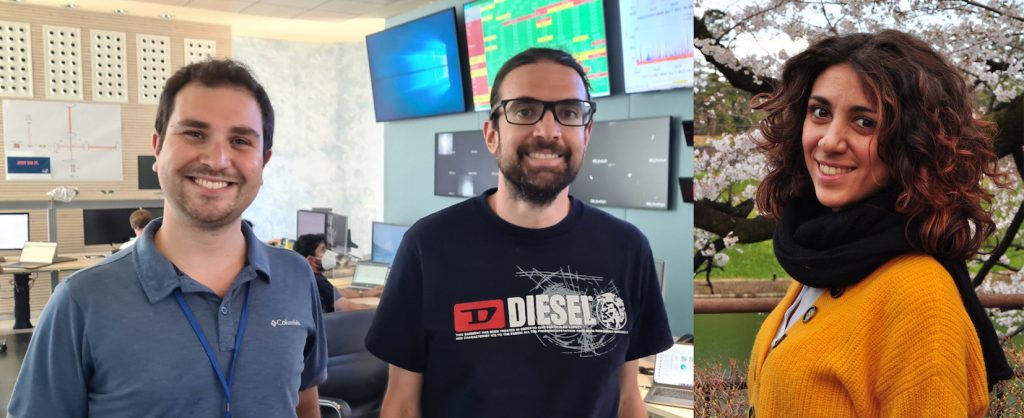
Three young Italian researchers are the winners of the second Virgo Award, promoted by the international Virgo Collaboration, which brings together scientists working on the large laser interferometer designed to detect gravitational waves.
The award, now in its second year, is presented to young scientists from the Collaboration for their significant contribution to the operation of the experiment and to the results of the Virgo Collaboration.
The three winners are:
- Francesco Di Renzo, INFN (National Institute for Nuclear Physics) Pisa, “for strong commitments to detector characterization and noise hunting activities”. The young scientist is a postdoctoral researcher at the Physics Department of the University of Pisa. He is active in the study of noise and the characterization of the Virgo detector, in order to improve its sensitivity to astrophysical signals.
- Eleonora Polini, LAPP/IN2P3 Laboratory of the CNRS, France, “for sustained contributions to optical benches and squeezing activities”. A Physics graduate from Sapienza University of Rome, the researcher is currently finishing her PhD in Physics in France where she had the opportunity to work on the Virgo experiment. Her main research interest is quantum optics applied to the enhancement of gravitational wave detectors.
- Marco Vardaro, National Institute for Subatomic Physics (Nikhef), the Netherlands, “for successful implementation of frequency dependent squeezing and commissioning activities”. A graduate from the University of Trento, he has been a postdoc at the University of Amsterdam since 2019. In the Virgo collaboration, he worked on both the control of the interferometer and the decrease of high-frequency quantum noise by injecting special light states called squeezed states.
“Three brilliant physicists who, despite their young age, have already made significant contributions to the experiment,” said Giovanni Losurdo, Virgo spokesperson and researcher at the INFN, “working on crucial aspects to improve the performance of the detector in view of the restart of data taking in spring 2023. The Virgo Award is an important moment to recognize the work of young scientists, who are not always in the spotlight”.

